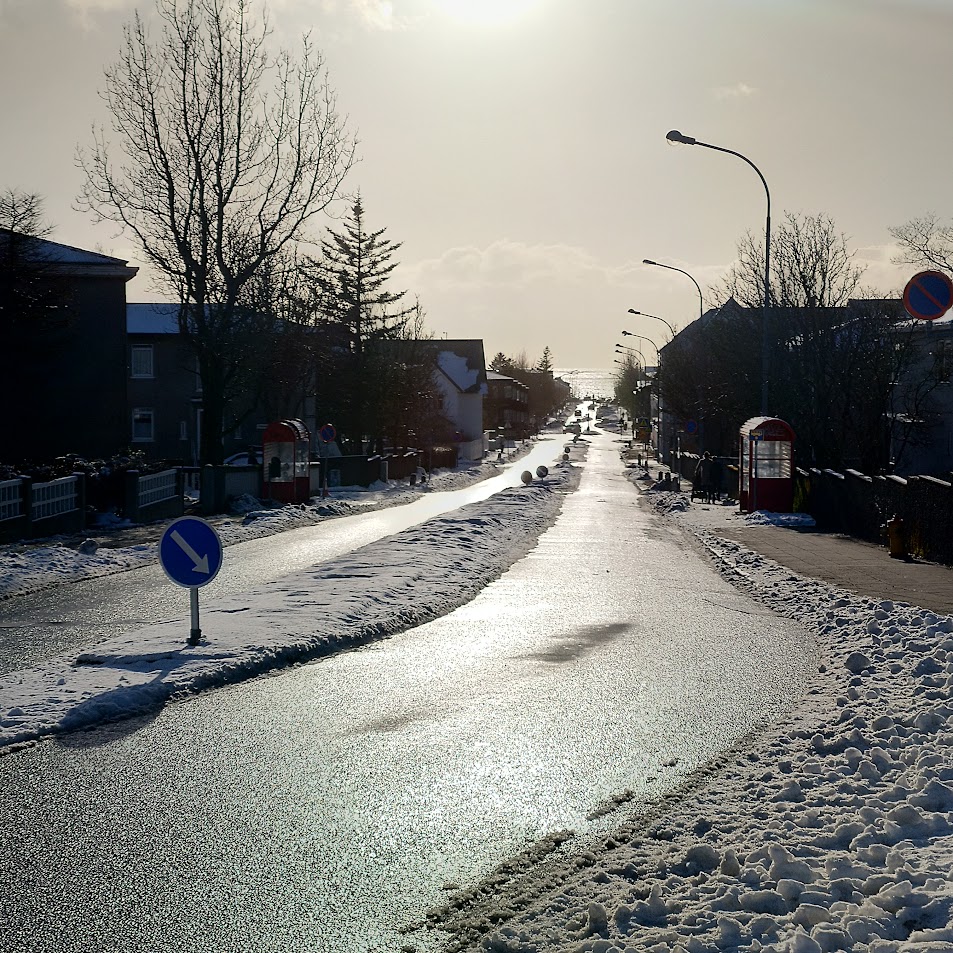Coming home by Ólafur Páll Jónsson

After three weeks away, first in Athens and then in Palermo for a partner meeting, I was finally back home. Those were wonderful three weeks, but as the saying goes: There is no place like home. While waiting to be picked up at the airport, I went outside to feel the cold wind on my skin. I looked at the snowy mountains in the distance and read out the signs to myself: “flugstöð”, “skammtímabílastæði”, “leigubílar”. I was home, this was my land.
We drove through the snow-covered lava fields, passing through the towns of Hafnarfjörður, Garðabær, and Kópavogur, until we finally arrived in Reykjavík. Compared to Athens and Palermo, those towns all look the same (though the locals might disagree). We stopped on the way and bought some soup for dinner which would be accompanied by warm home-made bread. This sure felt like home.
Coming home I was reminded of our training in Bulgaria almost six months ago when we had been asked: What is home to you and why? We had not been short of answers: Home is where we know our way around, where we feel safe, where we do not have to pretend, where faces are familiar, … This all rang true.
On my last night in Palermo, we dined at a restaurant called Moltivolti, run collaboratively by locals and refugees (https://moltivolti.org/. The people working there all wore t-shirts with the inscription: “La nostra terra è dove poggiano i nostri piedi” – our land is where our feet rest.
Having landed in my country, driven across my land, and then sitting down in my home eating soup and bread, this simple sentence gave me a pause. Could I ever think of my land simply where my feet rest? Could I ever think of making a home simply where I am, and not where I had a history, where both the culture and the land were familiar, where I felt secure exactly because all was familiar, and I knew that I was one of the locals?
My sense of home was so intimately tied to my land, tied to sharing a history with a place. The refugee is denied all this. Familiarity, feeling safe, not having to pretend – What do words and phrases like these mean to a refugee who has left all behind?
Moltivolti is not only a restaurant but a social project built around the idea that food can serve as a tool for dialogue between different people and cultures. The project is based on the belief in a world without borders, where every person has the right to follow their dreams regardless of where they are born.
I looked around me in the comfort of my home, in the presence of my wife and kid, and felt that perhaps the deepest meaning of home is where we can sit down, have some food, and dialogue freely. Instead of the static idea of home as a particular land or place I should rather think of home in a dynamic way, think of home in terms of relations – and relationships – rather than objects. Perhaps the deepest sense of home is where our humanity is reflected in the faces of those around us. Even if I were to lose my house and my land, I would still feel at home as long as I had my loved ones near me and could share some genuine moments with them, irrespective of which country lays claim to the land beneath my feet.

Funded by the European Union. Views and opinions expressed are however those of the author(s) only and do not necessarily reflect those of the European Union or the European Education and Culture Executive Agency (EACEA). Neither the European Union nor EACEA can be held responsible for them.